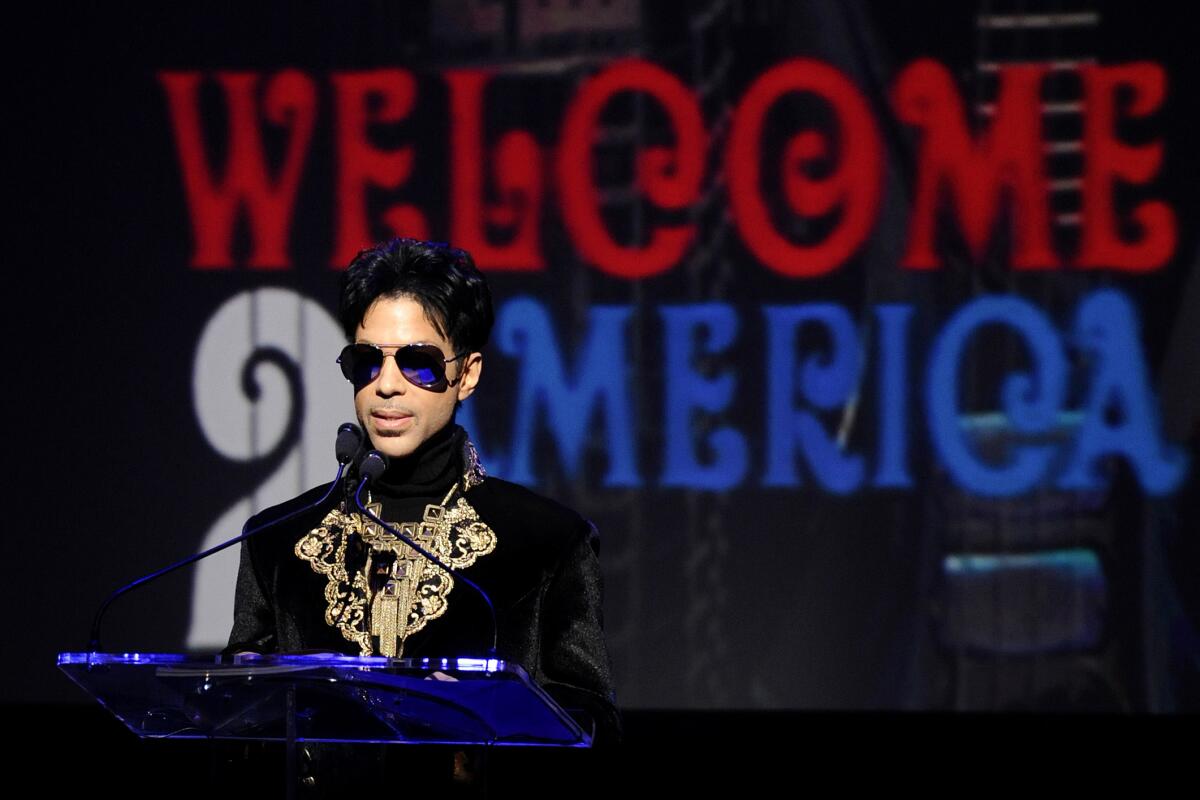IRS says executors undervalued Prince’s estate by 50%

- Share via
MINNEAPOLIS — The ongoing controversy over the money left behind by rock star Prince, who died without a will, is heating up again after IRS calculations showed that executors of his estate undervalued it by 50%, or about $80 million.
The Internal Revenue Service determined that Prince’s estate is worth $163.2 million, double the $82.3-million valuation submitted by Comerica Bank & Trust, the estate’s administrator. The disparity primarily involves Prince’s music publishing and recording interests, according to court documents.
Documents show that the IRS believes Prince’s estate owes another $32.4 million in federal taxes, roughly doubling the tax bill based on Comerica’s valuation, the Minneapolis Star Tribune reported.
The IRS also has ordered a $6.4-million “accuracy-related penalty” on Prince’s estate, citing a “substantial” undervaluation of assets, documents show.
Prince’s death of a fentanyl overdose April 21, 2016, created one of the largest and most complicated probate court proceedings in Minnesota history. Estimates of his net worth have varied widely, from $100 million to $300 million.
With Prince’s probate case dragging on, his six siblings have grown increasingly unhappy, particularly as the estate has doled out tens of millions of dollars to lawyers and consultants.
Comerica and its lawyers at Fredrikson & Byron in Minneapolis maintain that their estate valuations are solid. Comerica sued the IRS last summer in U.S. tax court in Washington, saying that the agency’s calculations were riddled with errors.
Bob Dylan’s entire catalog of songs, which spans 60 years and is among the most prized, is being acquired by Universal Music Publishing Group.
“What we have here is a classic battle of the experts — the estate’s experts and the IRS’ experts,” said Dennis Patrick, an estate-planning attorney in Minneapolis who is not involved in the case. Valuing a large estate, Patrick added, “is way more of an art than a science.”
Comerica, a Dallas-based financial services giant, has asked the tax court to hold a trial in St. Paul. A trial could dramatically prolong settlement of Prince’s estate and generate more legal fees at the expense of Prince’s heirs, Patrick said.
More to Read
The biggest entertainment stories
Get our big stories about Hollywood, film, television, music, arts, culture and more right in your inbox as soon as they publish.
You may occasionally receive promotional content from the Los Angeles Times.










